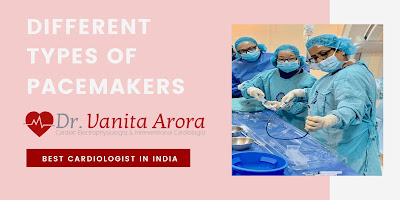Most Common Questions on AICD Answered by the Top AICD Implantation Doctor
In this blog post, Dr. Vanita, a leading AICD implantation doctor in India answers your most common queries on AICD implantation. What is AICD? The automatic implantable cardioverter-defibrillator (AICD) is a device that is implanted in the heart’s right ventricle. Its job is to regulate abnormal fast heart rhythms, when they become life-threatening to the patients, explains the best ACID implantation doctor in Delhi. This is how it works: • In the event of a sudden cardiac arrest, it tries to resume normal heart rhythm using high-speed pacing – also known as Anti Tachycardia Pacing (ATP) • If that doesn’t work, AICD will send an electrical shock to reset the heart’s rhythm – also known as defibrillation To prevent further episodes of Tachycardia, you may need catheter ablation (non-surgical method of creating extra electrical pathways), in conjunction with artery repair or heart valve surgeries. Some forms of Tachycardia can also be treated with pac...

